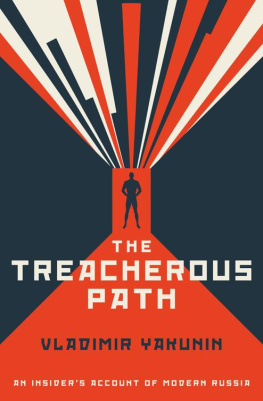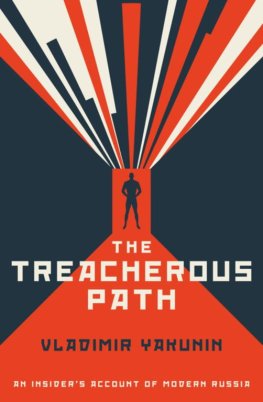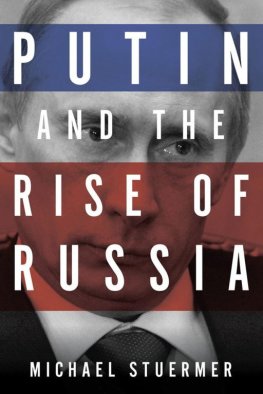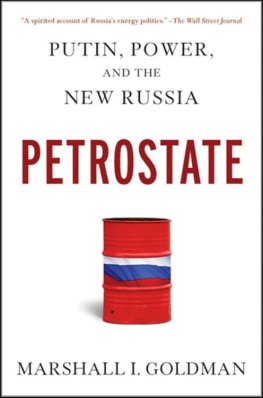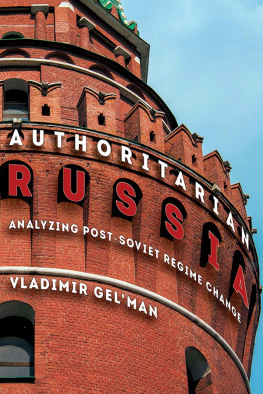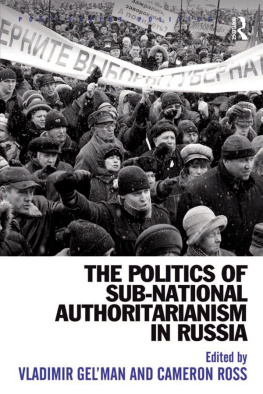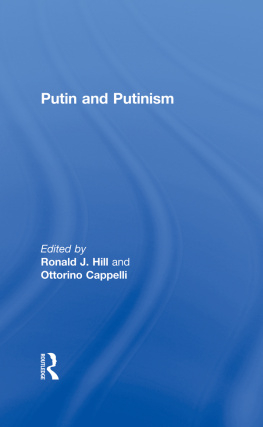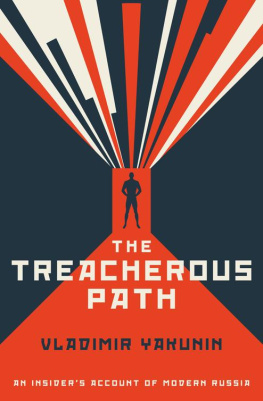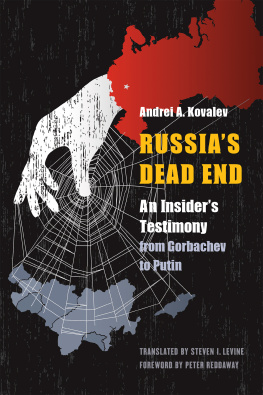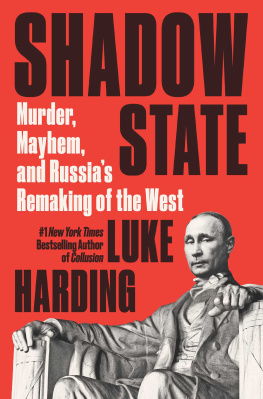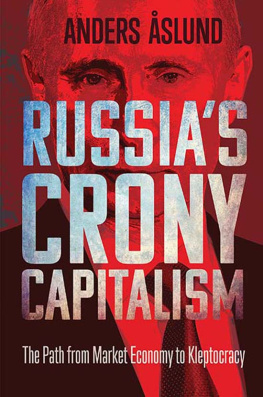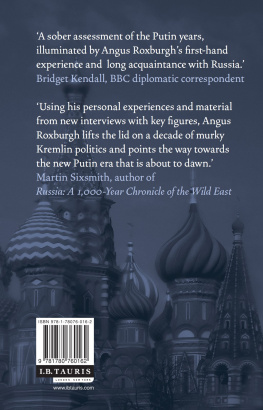I t is sometimes argued that ten different things can be said about Russia and all of them can be true. Russia as a country is a complex phenomenon, with different histories, cultural patterns and political orientations. This does not mean that relativism rules. Far from it. The lived experiences of Russians can be fundamentally divergent, but they are united in some sort of common endeavour and an appreciation of different aspects of the truth. This is why accounts provided by people who have been part of that contradictory reality are so important. There have been surprisingly few memoirs from the present generation of leaders and public personalities. While the Mikhail Gorbachev period from the mid-1980s has been covered by numerous memoirs, and the Boris Yeltsin years in the 1990s has been written about extensively, there is much to learn about the years since Vladimir Putin came to office in 2000 which is why this personal testimony from Vladimir Yakunin is so welcome.
The book provides a profound insight into the realities of Russia today, as told by one of the makers of modern Russia. Yakunins life story mirrors that of Russia itself over the past few decades. Born in 1948 in the Vladimir region, he lived until he was fourteen in Estonia, before his family moved to Leningrad (now St Petersburg), the city that he considers his hometown. In 1972, Yakunin graduated from the Leningrad Mechanical Institute, and then began his diverse and impressive career. He worked in the State Institute for Applied Chemistry, followed by two years compulsory military service in the Soviet Army. After demobilisation in 1977, he worked as a senior engineer in the State Committee for International Trade of the Council of Ministers, and then headed the Foreign Relations Department of the Ioffe Physico-Technical Institute. He was invited by KGB agents to work with them, and in 1985 he and his family left for New York to join the Soviet diplomatic mission at the United Nations.
Yakunin powerfully describes the double life in New York (as a diplomat and an agent) and the enormous stress that this produced, as well as the powerful impressions the country made on him impressions which informed the work of the Dialogue of Civilizations, the social movement that Yakunin co-founded in the early 2000s.
Like Putin, Yakunin was out of the country when Gorbachevs perestroika (restructuring) transformed the Soviet Union. By 1989 the cold war was effectively over and the Communist system had been dissolved. In its place came an ill-formed democracy and a thoroughly disorganised economy. The entrepreneurial energies of the country were unleashed, although much of this took semi-criminal if not outright bandit forms. Yakunin shares the view of much of the enlightened elite of the times that the Soviet Union had been running out of steam and that change was necessary, but he also shares the view that the ill-thought-out reforms ultimately destroyed the country and catastrophically undermined its position in the world.
Yakunin returned to St Petersburg in early 1991, just as the USSR entered its final trajectory towards disintegration. He describes the gangster capitalism of that decade and the emergence of powerful oligarchs who effectively tried to take over the state.
Although the period was lawless and the economy lacked an adequate regulatory framework, the opportunities for active people were enormous, and Yakunins account provides a vivid insight into this period of the primitive accumulation of capital, as Marx described the early stages of capitalist development. It was in this period that he got to know Putin.
In 1997, Putin, by now working in the Kremlin, invited Yakunin to return to state service as the head of the Northwest Regional branch of the State Inspectorate, a post he held until December 2000. Yakunin took over the supervision of the major port development at Ust-Luga and he writes vividly of the herculean task of building a major seaport, effectively from scratch, and the economic and geopolitical imperatives driving the project. He describes how the private sector was brought in to work in partnership with the state to turn the development of the port into a major Russian success story.
This discussion also reveals some of the major dividing lines in Russian debates over economic policy. Yakunin clearly believes that the state has a major part to play in economic development, but at the same time argues that industrial policy should be based on market methods of regulation and competitiveness. This is the classic Putinite formulation, although Yakunin is critical of the policies pursued in recent years. He treads a path between those advocating Soviet-style mobilisational forms of development, and neoliberals on the other flank who believe in the magic properties of the untrammelled market.
Between December 2000 and February 2002 Yakunin served as deputy transport minister under Sergei Frank, giving him the opportunity to put his ideas into practice while at the same time travelling all over the country, with responsibilities for merchant fleet and seaport development. In October 2003, Yakunin was appointed deputy head of the new Russian Railways corporation, and in June 2005 became its head, a position he held until August 2015.
Yakunin describes the challenges of modernising the system, including the need to attract private capital while not allowing the system to become fragmented. The privatisation and fragmentation of British Railways by the John Major government in the early 1990s is held up as an example of how not to do things. Yakunin describes the achievements of his tenure in office, including the creation of the high-speed line between Moscow and St Petersburg, with the Sapsan network reducing the journey time from overnight to four hours. The Trans-Siberian and Baikal-Amur Mainline (BAM) are also being upgraded, accompanied by a massive programme of rolling stock and engine renewal. Another herculean project was building the transport infrastructure for the Sochi Winter Olympic games of February 2014. The combined road and rail project running up from the coast at Adler all the way up the steep river valley, much of it on bridges and through tunnels, to the ski slopes of Krasnaya Polyana is one of the great engineering achievements of our time. Everyone who sees the swooping bridges, handsome stations, elegant tunnel entrances, humming electrical substations, and smooth roads stands in awe.
Yakunin does not hide the storm clouds gathering over the recent period of Russian politics. His own resignation as head of Russian Railways in 2015 has been interpreted as part of some dark intrigue, whereas in fact Yakunin argues it was prompted above all by the tightening budget restrictions on investment, and what he considered the ill-advised move to freeze railway tariffs in 2014, starving Russian Railways of investment resources. His final period in office was also accompanied by systematic attempts to denigrate his achievements and even his abilities, and he was placed on the US sanctions list (meaning that he cannot travel to the US). This sad turn of events, effectively a shift to something akin to a new cold war, after all the bright hopes of earlier years, imbues the final parts of this book with a pessimistic tone.

